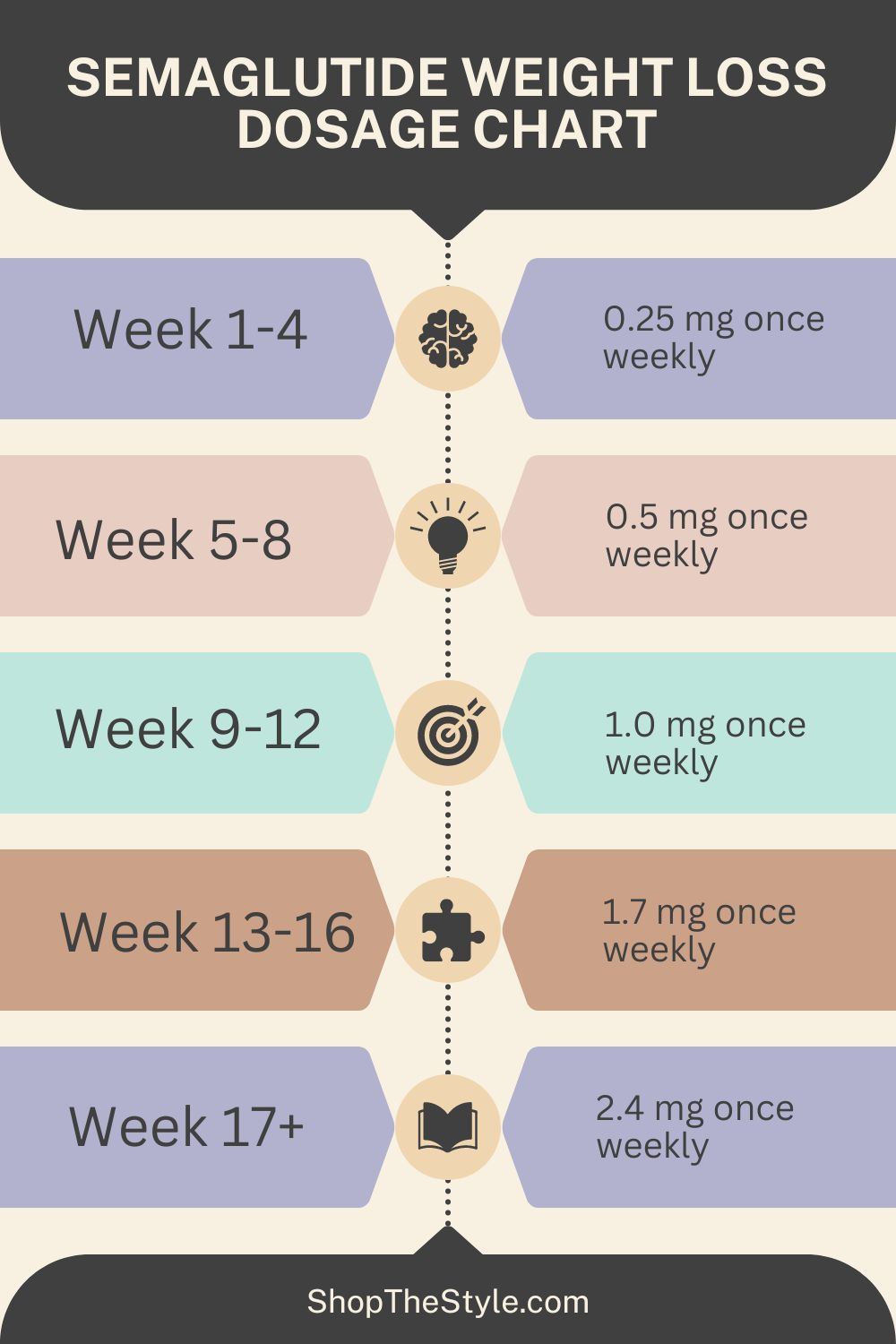If you’re looking for a boost in your weight loss efforts, you may have heard about Semaglutide. Available under the brand name Wegovy, Semaglutide is gaining popularity as a prescription medication designed to support long-term weight loss. Approved by the FDA, this medication can help regulate appetite and reduce caloric intake, but getting the dosage right is key to its effectiveness.
Here’s a breakdown of how Semaglutide is typically prescribed for weight loss, along with some important notes to keep in mind.
Contents [hide]
Semaglutide Weight Loss Dosage Chart
| Week | Dose (mg) | Notes |
|---|---|---|
| Week 1-4 | 0.25 mg once weekly | Starting dose to help your body adjust. Side effects like nausea or upset stomach may occur but are often temporary. |
| Week 5-8 | 0.5 mg once weekly | Increase to keep weight loss moving forward. This is a gradual step to reduce the risk of side effects while enhancing fat-burning capabilities. |
| Week 9-12 | 1.0 mg once weekly | By now, you should start to see noticeable progress. The 1.0 mg dose further reduces appetite and boosts your ability to maintain a calorie deficit. |
| Week 13-16 | 1.7 mg once weekly | This stage is for those who are responding well to the medication and need further assistance to reach their weight loss goals. |
| Week 17+ | 2.4 mg once weekly | The highest maintenance dose, aimed at providing ongoing support for those who need it. At this point, you should be well-adjusted to the medication. |
Why It Works
Semaglutide mimics a natural hormone in your body called GLP-1, which plays a key role in controlling appetite. By making you feel full sooner, it helps you reduce calorie intake without feeling deprived. But it’s not just about hunger—Semaglutide also slows down how quickly food leaves your stomach, meaning you stay satisfied for longer.
Is Semaglutide Right for You?
While the results are promising, Semaglutide is not for everyone. It’s typically prescribed for people who have a BMI of 30 or higher (or 27+ with weight-related health conditions). As with any medication, it’s crucial to consult with your healthcare provider to see if Semaglutide fits into your weight loss plan.
Important Considerations
- Side Effects: Like most medications, Semaglutide may cause side effects, especially during the first few weeks. Common ones include nausea, diarrhea, or constipation. Your doctor may suggest ways to reduce these symptoms.
- Cost & Insurance: Depending on your insurance coverage, Semaglutide may be costly, so check your options with your provider.
- Lifestyle: Remember, Semaglutide is not a quick fix. It works best when combined with a healthy diet and regular physical activity.
Semaglutide can be a game-changer for those who struggle with weight loss, but it’s essential to follow the dosage schedule and medical advice to see the best results. Patience is key—give your body time to adjust, and don’t be discouraged if progress feels slow at first. It’s all part of the journey!




